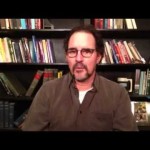We run our website the way we wished the whole internet worked: we provide high quality original content with no ads. We are funded solely by your direct support. Please consider supporting this project.
What is the significance of Numbers 14:12–20?
In response to Israel’s bickering the Lord says “I will strike them with pestilence and disinherit them, and I will make of you [Moses] a nation greater and mightier than they” (vs. 12). Moses asks the Lord to forgive the people, and the Lord eventually responds, “I do forgive, just as you have asked” (vs. 20).
Unless the intention the Lord declared to Moses in verse 12 was insincere, we must conclude that he did not at that point intend on forgiving the Israelites. It cannot have been certain at that time (let alone from all eternity) that God would forgive the Israelites. Hence, it seems that either the Lord is insincere, or the classical view of divine foreknowledge is mistaken.
Category: Q&A
Tags: Open Theism, Q&A
Topics: Open Theism
Verse: Numbers 14
Related Reading

Greg on the Open View of the Future
Greg was featured today on the Pangea blog. (Thanks Kurt!) The blog references a series of lectures Greg presented at the Open Theology and Science Conference at Azusa Pacific University, April 11, 2008 entitled “A Flexible Sovereignty: A Biblical Understanding of Providence and the Nature of the Future” . If you’re looking for a comprehensive video series on…

Free Will: What is a free agent?
What does it really mean to be a free agent? In this reflection, Greg offers some thoughts on free agents and how it can be that they are not exhaustively determined.

What is omni-resourcefulness?
Question: What do you mean when you refer to God’s omni-resourcefulness? Can you support this with Scripture? Answer: I and others use the term omni-resourcefulness to highlight a feature of God in Scripture that the classical theological tradition consistently overlooks. Part of the greatness of the God of the Bible, we argue, is that he…

What is the significance of 2 Chronicles 32:31?
“God left [Hezekiah] to himself, in order to test him and to know all that was in his heart.” God tests his covenant partners to discover whether they will choose to remain faithful to him, an exercise that is absurd if God exhaustively foreknows exactly how faithful every person will choose to be. If the…

How do you respond to John 6:44?
“No one can come to me unless drawn by the Father who sent me…” Calvinists sometimes argue that this passage teaches that the Father chooses and then “draws” certain people to Christ. Those who are “drawn” certainly come to Christ (John 6:37) while all who are not drawn remain in their sin. In short, this…

The Open View and Predestination
Paul wrote in Ephesians, “For he [God] chose us in him before the creation of the world to be holy and blameless in his sight. In love he predestined us for adoption to sonship through Jesus Christ …” (Eph 1:3-4). Some argue that the particular way Scripture portrays God’s providential plan is incompatible with the…
